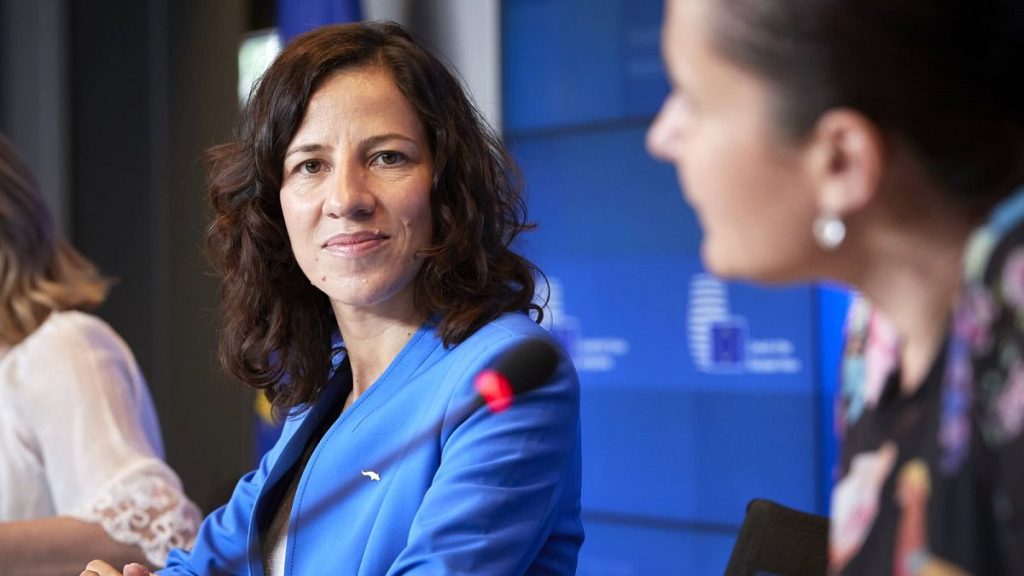Romania has changed its choice for EU Commissioner in response to calls for gender parity in the next cabinet by Commission President Ursula von der Leyen. Bucharest is now sending newly-elected MEP Roxana Mînzatu, a former minister for EU funds and secretary of state for public procurement, in hopes of securing a more influential portfolio. Mînzatu has emphasized the importance of gender equality and the need for competent female candidates in public life, especially as far-right nationalism threatens to reverse progress in this area.
Mînzatu believes that gender equality is not happening organically and fears that the rise of far-right parties in Europe is leading to a reversal of women’s rights. She highlights the correlation between far-right parties and the decrease in the number of women elected in the recent European Parliament Elections, with only around a third of countries sending a woman as their Commissioner nominee. Mînzatu stresses the need for both male and female competent candidates in positions of authority to help combat gender-based violence and change societal mentalities and biases that perpetuate discrimination against women.
The recent European Parliament Elections saw a drop in the number of women elected for the first time in 45 years, with only around 38.75% of MEPs being female. The Greens/EFA group stands out with gender parity, while the hard-right European Conservatives and Reformists Group has the lowest representation of female MEPs at 21.7%. Mînzatu sees this disparity as a reflection of the current political atmosphere and the bias that exists regarding the vulnerability of women in positions of authority.
President von der Leyen has requested member states to nominate both a woman and a man for Commissioner positions to achieve overall gender balance in her cabinet. Mînzatu supports this policy and believes that it is necessary to actively promote a fair and balanced representation of men and women in public life. She argues that exposure to male and female leaders in decision-making positions can help change societal attitudes and combat gender-based violence. The nominees for cabinet posts are set to be announced on 11 September and will undergo scrutiny by MEPs before being voted on by the European Parliament.
Romania’s decision to nominate Mînzatu for EU Commissioner reflects a commitment to gender parity and competence in public life. Bucharest hopes that by sending a capable female candidate, they increase their chances of receiving a more influential portfolio. Mînzatu’s background in EU funds and public procurement positions her well for the responsibilities of a Commissioner role and aligns with the priorities of the new Commission under von der Leyen. As Europe faces global competition and the need for strategic autonomy, Mînzatu emphasizes the importance of supporting SMEs and local producers through public procurement practices to stimulate growth and competitiveness in the EU.















